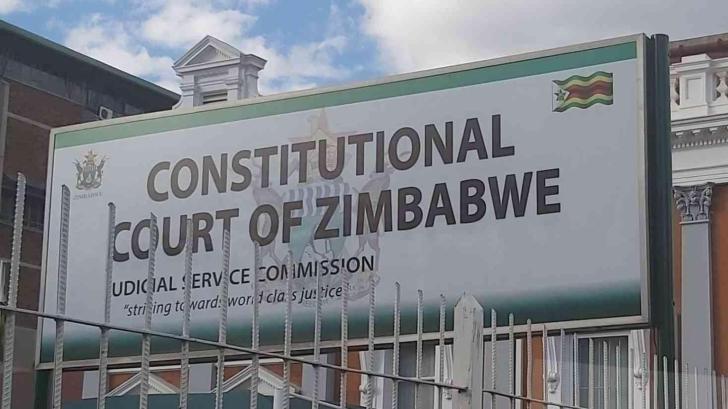News / National
ConCourt halts Chitungwiza mass demolition
08 Feb 2025 at 12:48hrs |
0 Views

The Constitutional Court (ConCourt) has upheld a High Court judgment halting mass demolitions in Chitungwiza, ruling that the demolition orders issued by the municipality were constitutionally invalid. The bench emphasized the importance of due process and the protection of residents' rights against arbitrary eviction.
In a landmark decision, the ConCourt reaffirmed the ruling made by High Court Judge Justice Never Katiyo, who, on October 16, 2020, condemned the widespread practice of demolishing residential properties by local authorities using outdated laws. Justice Katiyo had previously declared the provisions of sections 32 and 37 of the Regional, Town and Country Planning Act unconstitutional, specifically highlighting their conflict with section 74 of the Zimbabwean Constitution, which guarantees freedom from arbitrary eviction.
Justice Katiyo had ruled that sections 32(2)(c) and (d), along with section 37(1)(a)(i) of the Regional, Town and Country Planning Act, were ultra vires (beyond the powers) of the Constitution, and therefore, invalid. The judge also declared that the demolition order issued by Chitungwiza Municipality on October 8, 2020, was illegal.
The case stemmed from an application by the Chitungwiza Residents Trust, represented by Zimbabwe Lawyers for Human Rights, which sought a declaration that the provisions of the Regional, Town and Country Planning Act that authorized the demolitions were unconstitutional. The respondents in the case included Chitungwiza Municipality, the Minister of Local Government and Public Works Daniel Garwe, the Minister of Justice, Legal and Parliamentary Affairs Ziyambi Ziyambi, and Attorney-General Virginia Mabhiza.
In its ruling, the full ConCourt bench, comprising Justices Elizabeth Gwaunza, Bharat Patel, Paddington Garwe, Rita Makarau, Annie Gowora, Ben Hlatshwayo, and Nicholas Mathonsi, agreed that the demolition orders were unconstitutional. The judges highlighted that while local authorities have a valid and important purpose in town planning, the power to demolish unapproved structures cannot infringe on residents' constitutional rights without following due process.
The Chitungwiza Municipality had sought to demolish structures in several areas, including St Mary's, Zengeza, Seke, and Nyatsime, alleging that the buildings were illegal. However, the ConCourt bench emphasized that any eviction or demolition must be carried out in compliance with section 74 of the Constitution, which protects individuals from arbitrary eviction. The judges stated that demolition orders, even for town planning purposes, must be accompanied by a court order that considers all relevant circumstances.
"The justification for demolition, such as town planning interests, does not suffice to override the requirements of due process and violate the constitutional protection against arbitrary eviction," the court ruled. "The provisions of the Regional, Town and Country Planning Act that allow for demolition without adequate procedural safeguards are excessive and disproportionate, causing greater harm to residents' rights than is necessary for the achievement of town planning goals."
In conclusion, the ConCourt agreed that the provisions of the Act did not meet constitutional standards and ruled that they must be invalidated. This decision strengthens the protection of citizens' rights to due process and freedom from arbitrary eviction, especially in urban areas where land use and town planning are critical issues.
In a landmark decision, the ConCourt reaffirmed the ruling made by High Court Judge Justice Never Katiyo, who, on October 16, 2020, condemned the widespread practice of demolishing residential properties by local authorities using outdated laws. Justice Katiyo had previously declared the provisions of sections 32 and 37 of the Regional, Town and Country Planning Act unconstitutional, specifically highlighting their conflict with section 74 of the Zimbabwean Constitution, which guarantees freedom from arbitrary eviction.
Justice Katiyo had ruled that sections 32(2)(c) and (d), along with section 37(1)(a)(i) of the Regional, Town and Country Planning Act, were ultra vires (beyond the powers) of the Constitution, and therefore, invalid. The judge also declared that the demolition order issued by Chitungwiza Municipality on October 8, 2020, was illegal.
The case stemmed from an application by the Chitungwiza Residents Trust, represented by Zimbabwe Lawyers for Human Rights, which sought a declaration that the provisions of the Regional, Town and Country Planning Act that authorized the demolitions were unconstitutional. The respondents in the case included Chitungwiza Municipality, the Minister of Local Government and Public Works Daniel Garwe, the Minister of Justice, Legal and Parliamentary Affairs Ziyambi Ziyambi, and Attorney-General Virginia Mabhiza.
The Chitungwiza Municipality had sought to demolish structures in several areas, including St Mary's, Zengeza, Seke, and Nyatsime, alleging that the buildings were illegal. However, the ConCourt bench emphasized that any eviction or demolition must be carried out in compliance with section 74 of the Constitution, which protects individuals from arbitrary eviction. The judges stated that demolition orders, even for town planning purposes, must be accompanied by a court order that considers all relevant circumstances.
"The justification for demolition, such as town planning interests, does not suffice to override the requirements of due process and violate the constitutional protection against arbitrary eviction," the court ruled. "The provisions of the Regional, Town and Country Planning Act that allow for demolition without adequate procedural safeguards are excessive and disproportionate, causing greater harm to residents' rights than is necessary for the achievement of town planning goals."
In conclusion, the ConCourt agreed that the provisions of the Act did not meet constitutional standards and ruled that they must be invalidated. This decision strengthens the protection of citizens' rights to due process and freedom from arbitrary eviction, especially in urban areas where land use and town planning are critical issues.
Source - newsday
Join the discussion
Loading comments…























